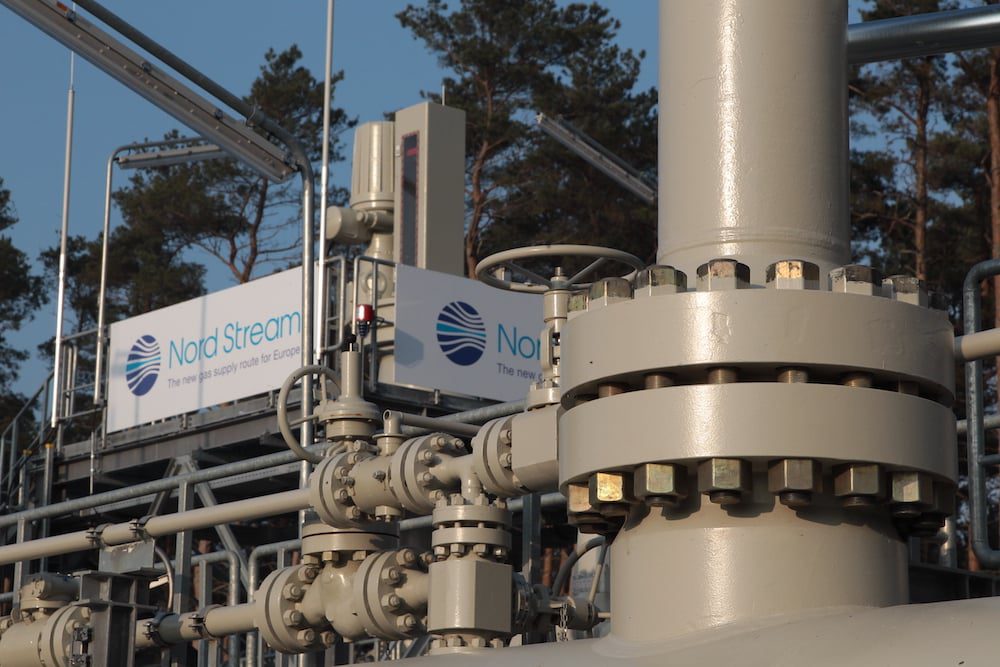
In an interview on December 29th with Russian group RBC Media, Russia’s Deputy Prime Minister Alexander Novak said certification of the Nord Stream 2 gas pipeline should end before the second half of 2022.
“If colleagues are interested in it and speed up the certification process, the supplying of gas can start much earlier,” the official went on to say.
The pipeline’s construction, which connects Russia to Germany by way of the Baltic Sea (and thus bypassing Ukraine), was completed in September but remains unused while awaiting regulatory approval from Berlin and Brussels.
The €10 billion pipeline has been built by Russian gas giant Gazprom, with half of the cost having been paid by European energy companies, namely Germany’s Uniper, BASF’s Wintershall Dea, international oil major Shell, Austria’s OMV, and France’s Engie.
It has an annual capacity of 1.9 trillion cubic feet (55 billion cubic meters), which would double the volume of gas pumped by Gazprom directly to Germany. The new government is divided over the issue.
The project (initially a purely commercial venture) has become a hot-button geopolitical issue amid tensions between Russia and the West, which fears Moscow may invade Ukraine to halt further NATO involvement. Russia has denied the allegations.
Critics in the U.S., Ukraine, and Poland warn that approval will increase Russia’s leverage over Europe, pit EU member states against each other, and deprive Ukraine of transit revenues, putting Ukraine in a less advantageous bargaining position.
Only last month, the chief executive of Ukraine’s state energy company Naftogaz expressed hope that the Nord Stream 2 gas pipeline would not become operational, saying it “did not meet European regulations.”
Washington has promoted an anti-Nord Stream 2 position to counter any Russian military action against Ukraine.
However, denying that Russia had a “Plan B”—should efforts come to naught—Novak confidently stated that “we don’t consider such options and believe it will be launched in line with the schedule set for certification.”
Deputy Prime Minister Novak went on to say that Russia has the ability and willingness to increase gas exports to Europe, which has seen a gargantuan surge in gas prices amid a rising demand and lack of supply. He however added the provision that long-term contracts only would be considered.
Such an arrangement is scoffed at by European companies, which favor short-term spot deals.
Earlier this month, pressure on Europe’s gas prices had further increased following the flow reversal, now going eastwards into Poland, in the Yamal – Europe pipeline, another major route for Russian gas to flow into Europe.
Europe’s need had become so dire that over one week ago a flotilla of U.S. carriers sailed out to provide relief.
On December 29th, Russian President Vladimir Putin said that “it’s now up to the Europeans to decide,” and that a launch of the Nord Stream 2 pipeline will lead to a decrease in gas prices in Europe, including Ukraine.
“This will undoubtedly affect the [gas] price on the market, on the spot. All those countries and consumers of these countries that consume Russian gas will immediately feel it. This also applies to economic participants and households,” the Russian leader said, adding that “of course, this will also affect the price for a country like Ukraine, which for political reasons, unfortunately, refuses to directly take Russian gas and is forced to take it at such high prices.”
Some politicians and experts have blamed Russia for restraining its gas exports as the wait for regulatory approval continues.
